
The Enchanting Legazpi Boulevard: A Coastal Gem in Legazpi, Philippines
Legazpi Boulevard is a picturesque seaside promenade that stretches along the coast of Legazpi City, offering stunning views of the majestic Mayon Volcano and the serene Albay Gulf. This beautiful boulevard is not just a road; it’s a vibrant hub where nature, culture, and leisure meet, creating an unforgettable experience for visitors. Taking a leisurely stroll along Legazpi Boulevard, you will find a variety of attractions and activities to enjoy. From charming cafes and local eateries serving delectable Bicolano cuisine to lively markets showcasing local crafts and produce, there is something for everyone. The boulevard is also dotted with parks and open spaces, perfect for picnics, jogging, or simply relaxing while taking in the breathtaking scenery. In the evening, Legazpi Boulevard transforms into a lively entertainment hotspot. Street performers, live music, and local festivals often light up the night, providing an authentic taste of the local culture and community spirit. Whether you are looking to unwind by the sea, indulge in local flavors, or immerse yourself in the vibrant atmosphere, Legazpi Boulevard is a must-visit destination in Legazpi City.
Local tips in Legazpi Boulevard
- Visit early in the morning or late in the afternoon to enjoy the best views of Mayon Volcano without the harsh midday sun.
- Try the local Bicolano dishes at the seaside eateries, especially the spicy Bicol Express and Laing.
- Bring a picnic blanket and enjoy a relaxing afternoon at one of the many parks along the boulevard.
- Check out the local markets for unique souvenirs and fresh local produce.
- Keep an eye out for local festivals and events, which often take place along the boulevard, offering a glimpse into the vibrant local culture.
The Enchanting Legazpi Boulevard: A Coastal Gem in Legazpi, Philippines
Legazpi Boulevard is a picturesque seaside promenade that stretches along the coast of Legazpi City, offering stunning views of the majestic Mayon Volcano and the serene Albay Gulf. This beautiful boulevard is not just a road; it’s a vibrant hub where nature, culture, and leisure meet, creating an unforgettable experience for visitors. Taking a leisurely stroll along Legazpi Boulevard, you will find a variety of attractions and activities to enjoy. From charming cafes and local eateries serving delectable Bicolano cuisine to lively markets showcasing local crafts and produce, there is something for everyone. The boulevard is also dotted with parks and open spaces, perfect for picnics, jogging, or simply relaxing while taking in the breathtaking scenery. In the evening, Legazpi Boulevard transforms into a lively entertainment hotspot. Street performers, live music, and local festivals often light up the night, providing an authentic taste of the local culture and community spirit. Whether you are looking to unwind by the sea, indulge in local flavors, or immerse yourself in the vibrant atmosphere, Legazpi Boulevard is a must-visit destination in Legazpi City.
Iconic landmarks you can’t miss
JCI Legazpi Tourism Supermarker
Experience the vibrant culture and stunning views at JCI Legazpi Tourism Supermarket - a historic landmark in the heart of Albay.
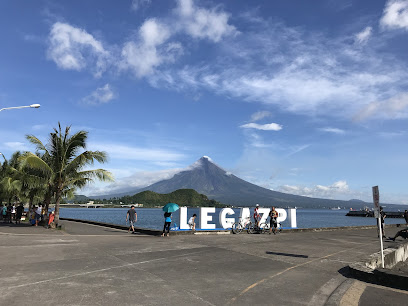
LEGAZPI SIGN
Explore the iconic Legazpi Sign, where culture meets breathtaking views in the heart of Legazpi City, Albay.
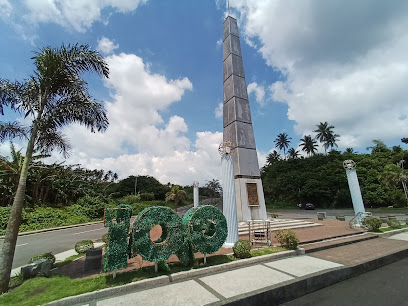
Mt. Mayon View Point
Discover the iconic Mt. Mayon View Point in Albay, where stunning natural beauty meets rich cultural heritage, perfect for every traveler.
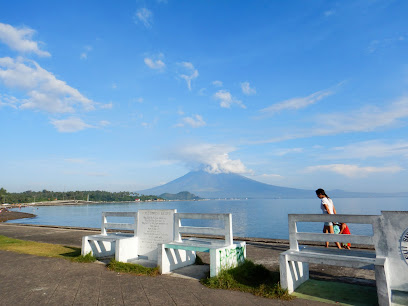
Sleeping Lion / Kapuntukan Hill
Experience the breathtaking views and serenity of Kapuntukan Hill, a natural gem in Legazpi City offering adventure and tranquility.
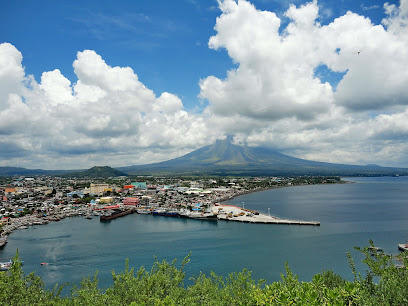
Battle of Legazpi Pylon
Explore the Battle of Legazpi Pylon, a historical landmark that tells the story of bravery and resilience in Albay, Philippines.
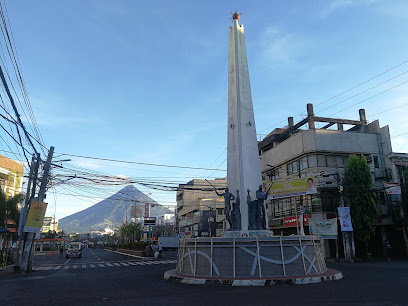
Legaspi Marker
Explore the rich history and stunning landscapes at the Legaspi Marker, a must-visit historical landmark in Albay, Philippines.
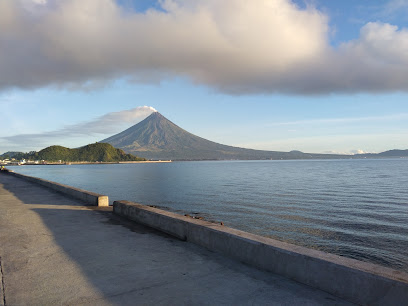
Puro Legazpi City
Discover the captivating beauty and rich culture of Puro Legazpi City, a must-visit destination in Albay, Philippines, perfect for every traveler.
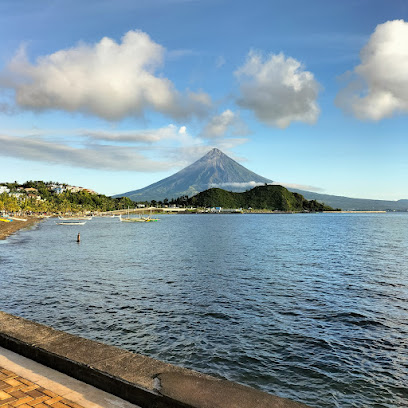
Ibalong Festival Monument
Discover the Ibalong Festival Monument in Legazpi City, a historical landmark celebrating Bicol's rich culture and folklore with stunning views of Mayon Volcano.
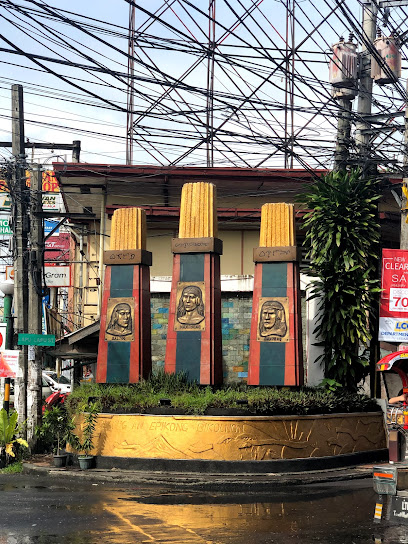
Legazpi Macabalo Esplanades
Discover stunning views and local culture at Legazpi Macabalo Esplanades, a scenic coastal promenade in the heart of Legazpi City, Albay.
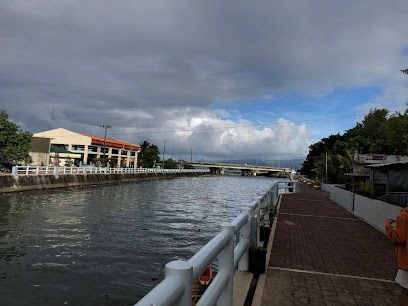
Legazpi Avenue
Discover serenity at Legazpi Avenue, a beautiful park in Legazpi City, perfect for relaxation, picnics, and enjoying nature's beauty.
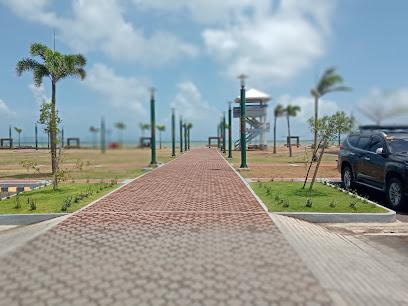
Unmissable attractions to see
Peñaranda Park
Discover the beauty of Peñaranda Park, a serene urban oasis in Legazpi City, where lush landscapes meet stunning views of Mayon Volcano.
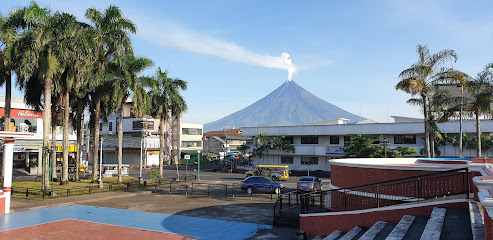
Albay Park & Wildlife
Explore Albay Park & Wildlife: a stunning blend of nature and wildlife in Legazpi City, perfect for families and nature enthusiasts.
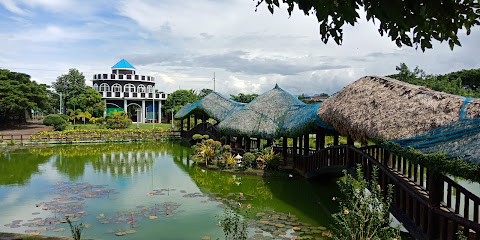
LEGAZPI SIGN
Discover the stunning Legazpi Sign, a must-visit landmark in Albay, where breathtaking views and rich culture come together to create unforgettable memories.
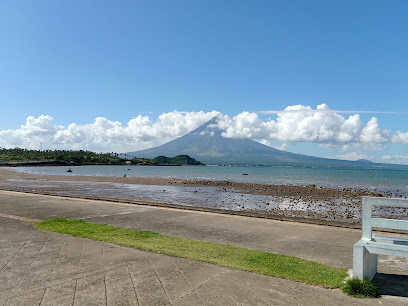
Puro Legazpi City
Discover the enchanting beauty and rich culture of Puro in Legazpi City, a must-visit tourist attraction in Albay, Philippines.
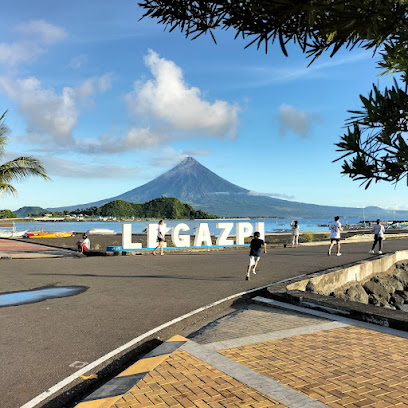
Legazpi Macabalo Esplanades
Experience the breathtaking views and vibrant local culture at Legazpi Macabalo Esplanades, a must-visit tourist destination in Albay.
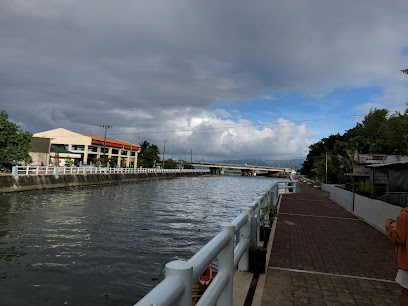
Legazpi-Donsol-Caramoan
Explore the breathtaking landscapes and unique marine experiences of Legazpi-Donsol-Caramoan, a top destination in the Philippines for adventure and culture.
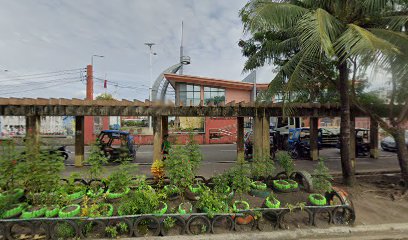
Essential places to dine
Zoe's Kitchen
Experience the vibrant culinary scene at Zoe's Kitchen in Legazpi City, where local ingredients meet international flavors for an unforgettable dining experience.
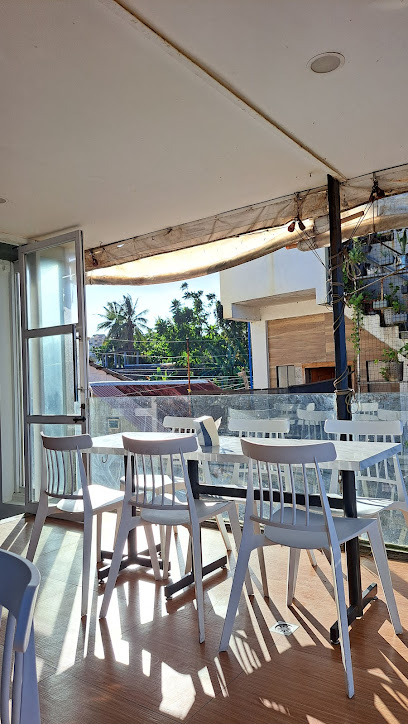
JIAH Kitchen
Discover authentic Middle Eastern flavors at JIAH Kitchen in Legazpi City – where every meal is a celebration of taste and tradition.
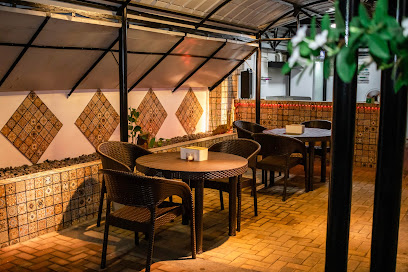
Mjm By The Bay Grill & Restaurant (Branch 1)
Discover exquisite Asian cuisine with stunning bay views at Mjm By The Bay Grill & Restaurant in Legazpi City.
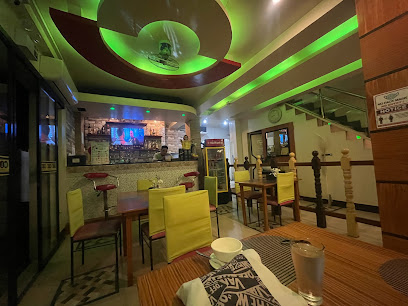
Rockport Cottage
Experience delectable cuisine and vibrant atmosphere at Rockport Cottage in Legazpi City – your go-to destination for unforgettable dining.
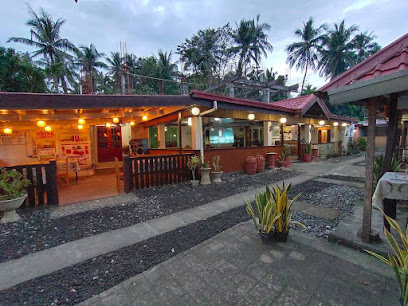
C Front
Discover C Front in Legazpi City - where delicious grilled cuisine meets stunning views of Albay's natural beauty.
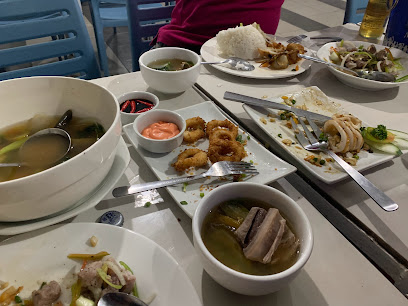
THE ALAMO'S
Savor authentic local cuisine at The Alamo's in Legazpi Port District - where every meal tells a story.
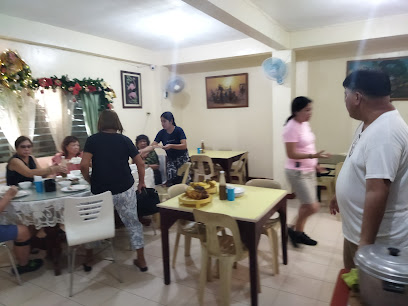
Zagitsit Resto Grill
Experience authentic Filipino grilled cuisine at Zagitsit Resto Grill in Legazpi City - where flavor meets tradition!
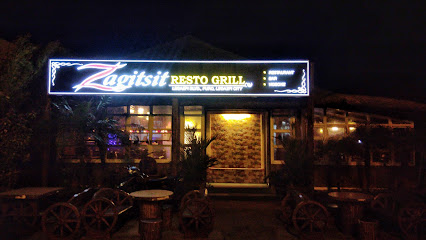
The Nest
Discover the authentic taste of Albay at The Nest - where local flavors meet exceptional dining experiences.
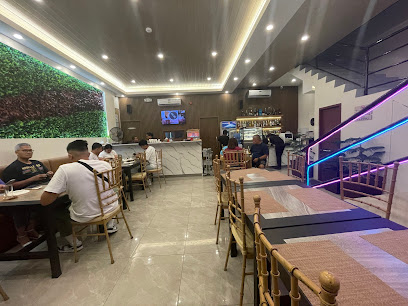
4D' Road Resto Bar & Cafe
Experience delightful grilled dishes and cafe favorites at 4D' Road Resto Bar & Cafe in Legazpi City - where flavor meets fun!
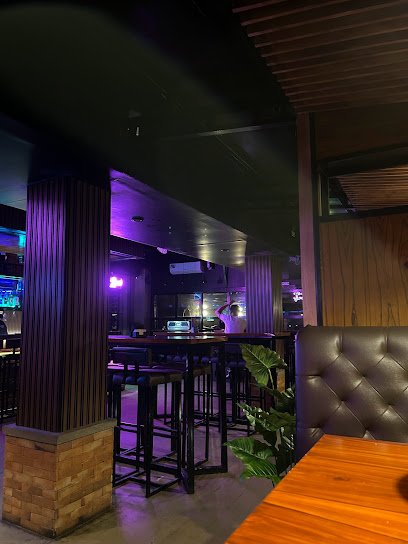
Zette's More than Barbecue
Experience authentic barbecue delights at Zette's More than Barbecue in Legazpi City – where flavor meets tradition in a warm atmosphere.
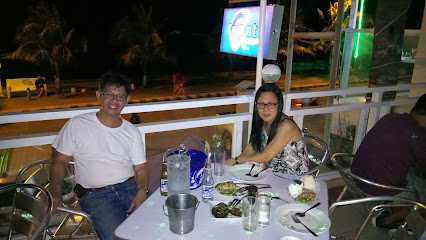
Markets, malls and hidden boutiques
101 Shopping Mall
Explore a shopper's haven at 101 Shopping Mall in Legazpi City, where retail therapy meets local culture and modern amenities.
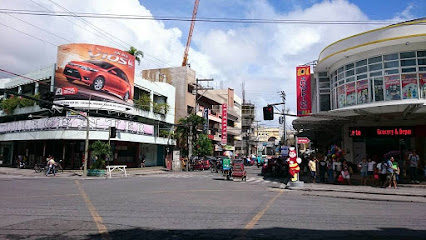
Legazpi Textile Emporium
Explore the vibrant textile culture of the Philippines at Legazpi Textile Emporium, where unique clothing and rich heritage meet.

Lucky Choice
Explore stylish clothing and unique accessories at Lucky Choice, your ultimate fashion destination in Legazpi City, Albay.
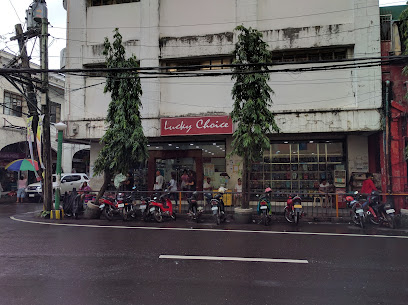
UNIQLO SM City Legazpi
Discover stylish and comfortable apparel for all ages at UNIQLO SM City Legazpi, your go-to clothing store in the heart of Legazpi City.
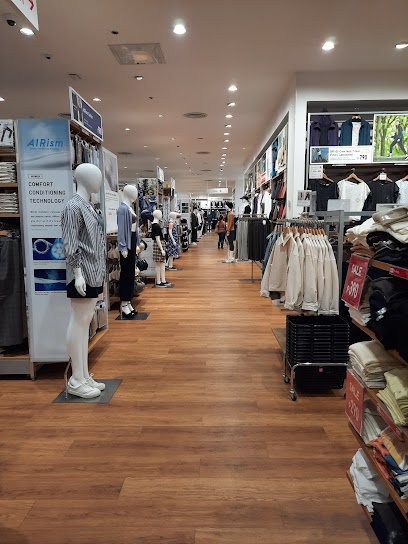
J Gift Shop at Furniture
Explore J Gift Shop in Legazpi City for unique souvenirs and local crafts that embody the spirit of Albay and its rich heritage.
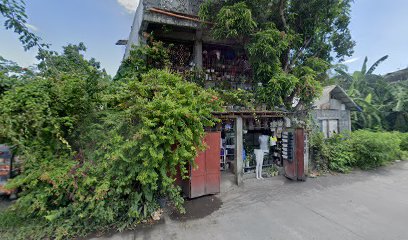
Penshoppe
Explore Penshoppe in Legazpi City for trendy clothing and vibrant Filipino fashion that captures the essence of local style.
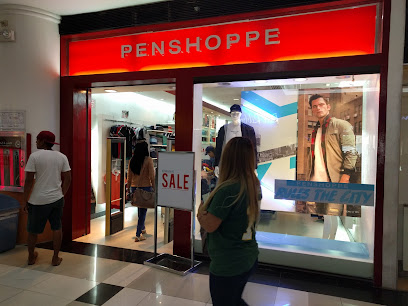
Creative Corner and General Merchandise
Explore Creative Corner in Legazpi City for all your party supply needs, blending local culture and festive spirit in a vibrant shopping experience.
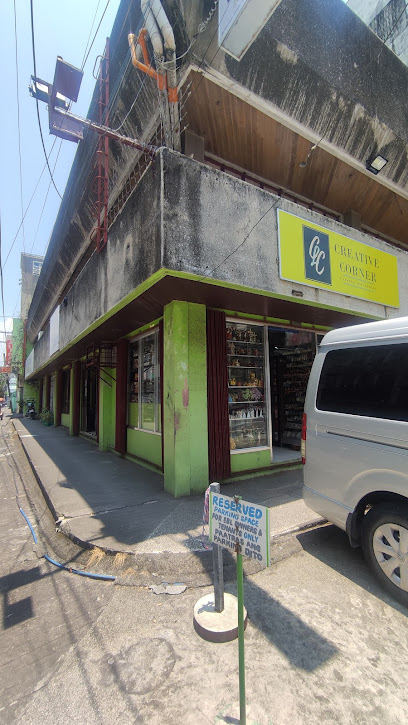
Maarte Collection & Gift Shoppe
Explore the local craftsmanship and unique fashion at Maarte Collection & Gift Shoppe in Legazpi City - a treasure trove for discerning tourists.

Blindspot Store
Conveniently located in Legazpi City, Blindspot Store offers a wide range of essential items for tourists exploring the beauty of Albay.
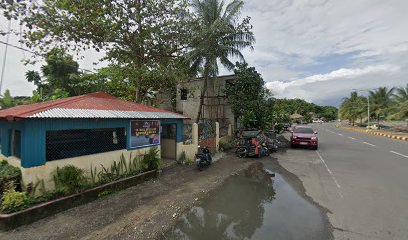
Kultura Filipino - Legazpi, The SM Store
Explore the rich cultural heritage of the Philippines at Kultura Filipino in Legazpi City, your ultimate souvenir destination for unique local crafts.

Essential bars & hidden hideouts
Bar 101
Discover the lively spirit of Legazpi City at Bar 101, where great drinks and unforgettable views await every visitor.
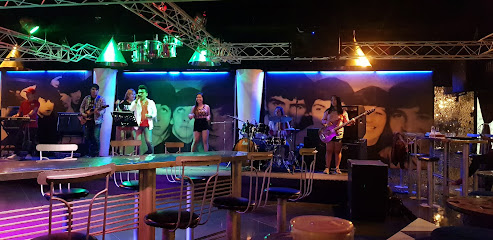
Rockport Cottage
Discover the flavors of Legazpi City at Rockport Cottage, a vibrant restaurant and bar offering grilled delights and stunning views.
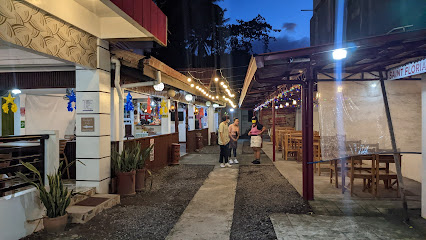
Kapuntukan Resto Bar and Grille
Discover the flavors of Legazpi City at Kapuntukan Resto Bar and Grille, where local cuisine meets stunning seaside views.
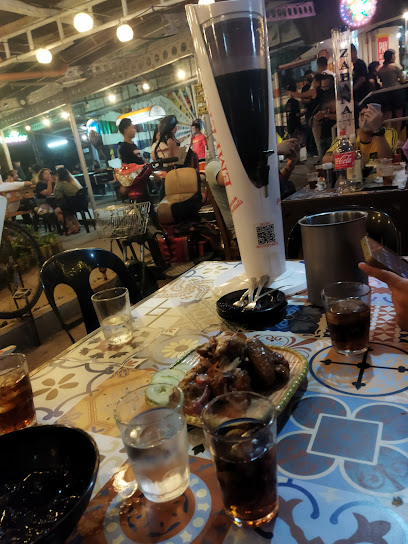
Pavi's Place & Restobar
Discover the flavors of Legazpi City at Pavi's Place & Restobar, where grilled delights meet a welcoming atmosphere.
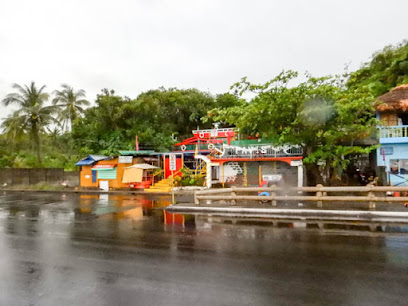
BUQ Tides Sports Grill & Resto
Discover the ultimate sports bar experience at BUQ Tides Sports Grill & Resto in Legazpi City, where great food meets thrilling entertainment.
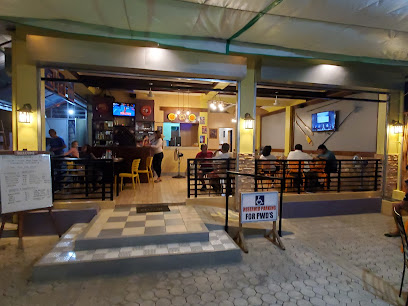
4D' Road Resto Bar & Cafe
Savor delicious grilled dishes and café favorites at 4D' Road Resto Bar & Cafe, the ultimate dining experience in Legazpi City, Albay.
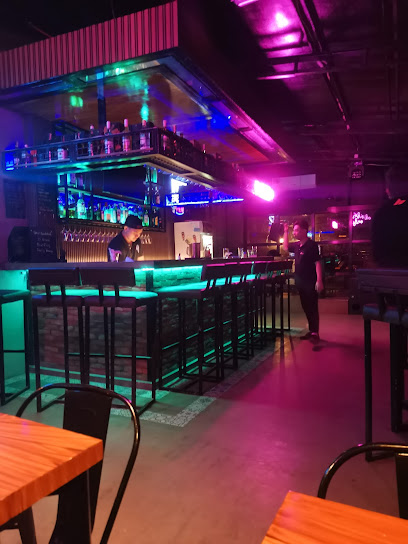
Jabo Grill & Restobar
Discover the vibrant culinary scene at Jabo Grill & Restobar in Legazpi City, where grilled delights meet local flavors in a lively atmosphere.
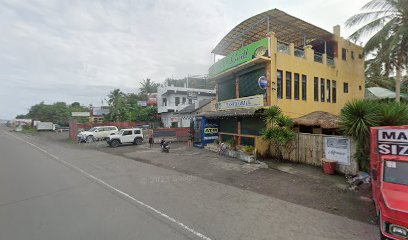
Papa Boy's Bar And Grill
Experience local flavors and vibrant nightlife at Papa Boy's Bar And Grill in Legazpi City, a culinary gem waiting to delight your senses.
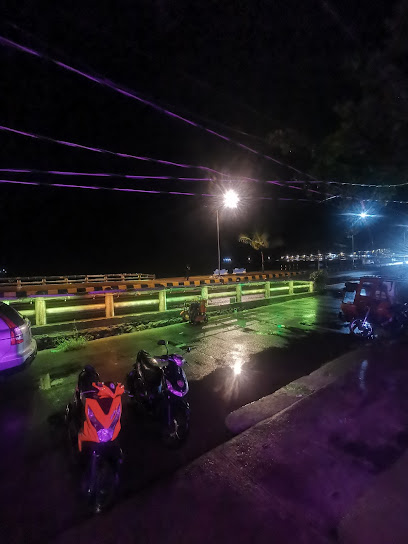
Boulevard ktv Bar & Grill
Discover the lively Boulevard KTV Bar & Grill in Legazpi City, where delicious grilled dishes meet vibrant karaoke entertainment for an unforgettable experience.
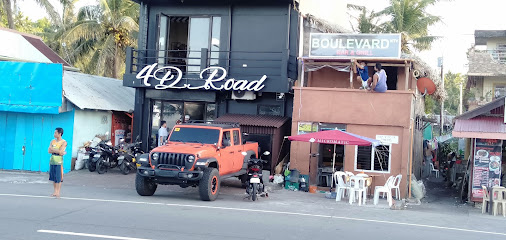
De' Ruce Resto Bar
Experience the vibrant flavors of Legazpi City at De' Ruce Resto Bar, where grilled delicacies meet lively ambiance for an unforgettable dining experience.
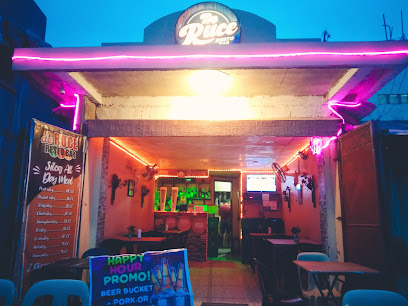
Local Phrases
-
- HelloKamusta
[ka-mus-ta] - GoodbyePaalam
[pa-a-lam] - YesOo
[o-o] - NoHindi
[hin-di] - Please/You're welcomeMangyari/ Walang anuman
[man-gya-ri/ wa-lang a-nu-man] - Thank youSalamat
[sa-la-mat] - Excuse me/SorryPaumanhin/Pasensya
[pa-u-man-hin/pa-sen-sya] - How are you?Kamusta ka?
[ka-mus-ta ka?] - Fine. And you?Mabuti. Ikaw?
[ma-bu-ti. i-kaw?] - Do you speak English?Nagsasalita ka ba ng Ingles?
[nag-sa-sa-li-ta ka ba ng in-gles?] - I don't understandHindi ko maintindihan
[hin-di ko main-tin-di-han]
- HelloKamusta
-
- I'd like to see the menu, pleaseGusto ko sanang makita ang menu, pakiusap
[gus-to ko sa-nang ma-ki-ta ang me-nu, pa-ki-u-sap] - I don't eat meatHindi ako kumakain ng karne
[hin-di a-ko ku-ma-kain ng kar-ne] - Cheers!Mabuhay!
[ma-bu-hay!] - I would like to pay, pleaseGusto ko sanang magbayad, pakiusap
[gus-to ko sa-nang mag-ba-yad, pa-ki-u-sap]
- I'd like to see the menu, pleaseGusto ko sanang makita ang menu, pakiusap
-
- Help!Tulong!
[tu-long!] - Go away!Lumayo ka!
[lu-ma-yo ka!] - Call the Police!Tumawag ng pulis!
[tu-ma-wag ng pu-lis!] - Call a doctor!Tumawag ng doktor!
[tu-ma-wag ng dok-tor!] - I'm lostNawawala ako
[na-wa-wa-la a-ko] - I'm illMay sakit ako
[may sa-kit a-ko]
- Help!Tulong!
-
- I'd like to buy...Gusto ko sanang bumili ng...
[gus-to ko sa-nang bu-mi-li ng...] - I'm just lookingNagmamasid lamang ako
[nag-ma-ma-sid la-mang a-ko] - How much is it?Magkano ito?
[mag-ka-no i-to?] - That's too expensiveMasyadong mahal iyon
[ma-sya-dong ma-hal i-yon] - Can you lower the price?Pwede bang ibaba ang presyo?
[pu-we-de bang i-ba-ba ang pres-yo?]
- I'd like to buy...Gusto ko sanang bumili ng...
-
- What time is it?Anong oras na?
[a-nong o-ras na?] - It's one o'clockAlas-uno na
[a-las-u-no na] - Half past (10)Alas-diyes y medya
[a-las-dyes y med-ya] - MorningUmaga
[u-ma-ga] - AfternoonHapon
[ha-pon] - EveningGabi
[ga-bi] - YesterdayKahapon
[ka-ha-pon] - TodayNgayon
[nga-yon] - TomorrowBukas
[bu-kas] - 1Isa
[i-sa] - 2Dalawa
[da-la-wa] - 3Tatlo
[tat-lo] - 4Apat
[a-pat] - 5Lima
[li-ma] - 6Anim
[a-nim] - 7Pito
[pi-to] - 8Walo
[wa-lo] - 9Siyam
[si-yam] - 10Sampu
[sam-pu]
- What time is it?Anong oras na?
-
- Where's a/the...?Nasaan ang...?
[na-sa-an ang...?] - What's the address?Ano ang address?
[a-no ang ad-dres?] - Can you show me (on the map)?Pwede mo bang ipakita sa akin (sa mapa)?
[pu-we-de mo bang i-pa-ki-ta sa a-kin (sa ma-pa)?] - When's the next (bus)?Kailan ang susunod (bus)?
[ka-i-lan ang su-su-nod (bus)?] - A ticket (to ....)Isang tiket (papuntang ...)
[i-sang ti-ket (pa-pun-tang ...)]
- Where's a/the...?Nasaan ang...?
History of Legazpi Boulevard
-
Legazpi Boulevard is named after the Spanish explorer Miguel López de Legazpi, who established the first permanent Spanish settlement in the Philippines in 1565. The area around Legazpi Boulevard was part of the larger region that witnessed the arrival of the Spanish, leading to significant cultural and religious transformations. Churches and government structures were built, some remnants of which can still be seen in the vicinity.
-
During World War II, Legazpi City, including the area around Legazpi Boulevard, was occupied by Japanese forces. The strategic location of the boulevard made it a significant point during the war. After the liberation of the Philippines in 1945, the area saw a rebuilding phase that transformed the urban landscape and infrastructure.
-
In the years following World War II, Legazpi Boulevard underwent significant urban development as the city expanded. The area became a vibrant commercial and residential hub, reflecting the post-war economic growth in the Bicol Region. Local businesses flourished, contributing to the cultural tapestry of Legazpi, where traditions and modernity coexisted.
-
Today, Legazpi Boulevard serves as a cultural landmark that hosts various local festivals and events, celebrating the rich heritage of Legazpi City. The boulevard is often filled with locals and tourists alike, enjoying the waterfront views of Albay Gulf while engaging with local artisans and vendors, showcasing Bicolano crafts and cuisine.
-
In recent years, Legazpi Boulevard has become a focal point for environmental initiatives aimed at promoting sustainable tourism and conservation efforts. The local government has invested in beautification projects and green spaces, enhancing the area’s appeal while raising awareness about environmental preservation among residents and visitors.
Legazpi Boulevard Essentials
-
Legazpi Boulevard is easily accessible from other neighborhoods in Legazpi. The main entry points are through public transportation options such as jeepneys and tricycles. From the Legazpi City Airport, you can take a taxi or a tricycle directly to the boulevard, which is about a 15-minute ride. If you're coming from the city center, jeepneys heading to Embarcadero de Legazpi can drop you off nearby.
-
Legazpi Boulevard is primarily pedestrian-friendly, making it easy to explore on foot. For longer distances, tricycles and motorcycle taxis are readily available and can be hailed from the street. Jeepneys also operate along major routes near the boulevard, providing an affordable means of transport. Bicycles can be rented from local shops, and cycling is a pleasant way to see the area.
-
Legazpi Boulevard is generally safe for tourists, but it is advisable to remain cautious, especially in less crowded areas during the evening. There have been occasional reports of petty crimes such as pickpocketing. Areas around crowded markets and public transport hubs may require extra vigilance. Avoid walking alone late at night in secluded spots.
-
In case of an emergency, dial 911 for police, fire, or medical assistance. The nearest hospital is Bicol Regional Training and Teaching Hospital, which is well-equipped. It is advisable to have travel insurance that covers medical emergencies. For minor health issues, local pharmacies are available and can provide over-the-counter medications.
-
Fashion: Do dress modestly, particularly when visiting religious sites. Avoid overly revealing clothing. Religion: Do respect local customs and traditions, especially during religious events. Public Transport: Do be courteous, offering your seat to the elderly. Don’t eat or drink in public transport. Greetings: Do greet locals with a smile and a friendly 'Magandang araw' (Good day). Eating & Drinking: Do try local specialties like Bicol express and laing. Don’t refuse food or drink offered to you, as it’s considered impolite.
-
To experience Legazpi Boulevard like a local, take time to visit the weekly markets where you can find fresh produce and Bicolano delicacies. Engage with local vendors, who are usually friendly and eager to share tips about the area. Enjoy the sunset views along the boulevard and don’t miss the chance to try local street food. Visiting the nearby Cagsawa Ruins is also a must for a glimpse of history and iconic views of Mayon Volcano.
Nearby Cities to Legazpi Boulevard
-
Things To Do in Boracay
-
Things To Do in Cebu City
-
Things To Do in Tagaytay
-
Things To Do in Manila
-
Things To Do in Bohol
-
Things To Do in Angeles City
-
Things To Do in Subic
-
Things To Do in Siargao
-
Things To Do in Camiguin
-
Things To Do in Baguio
-
Things To Do in Cagayan de Oro
-
Things To Do in Sagada
-
Things To Do in Vigan
-
Things To Do in Ilocos Norte
-
Things To Do in Puerto Princesa







